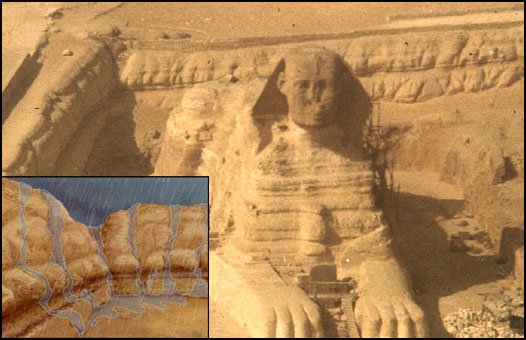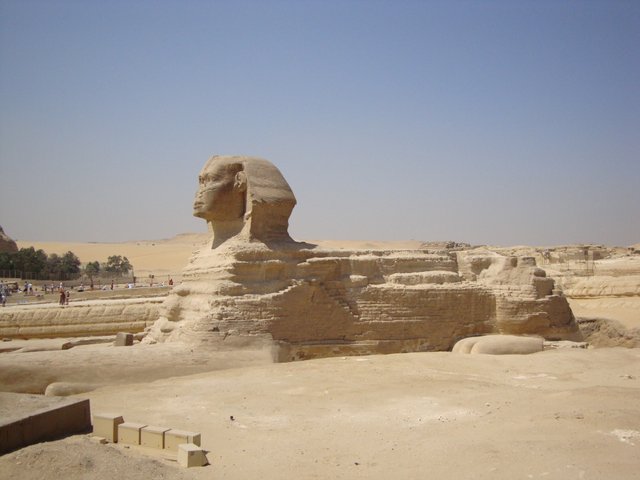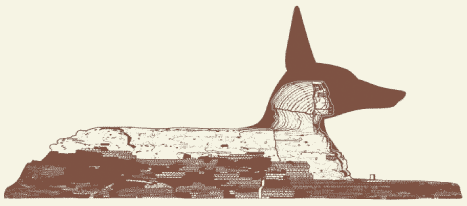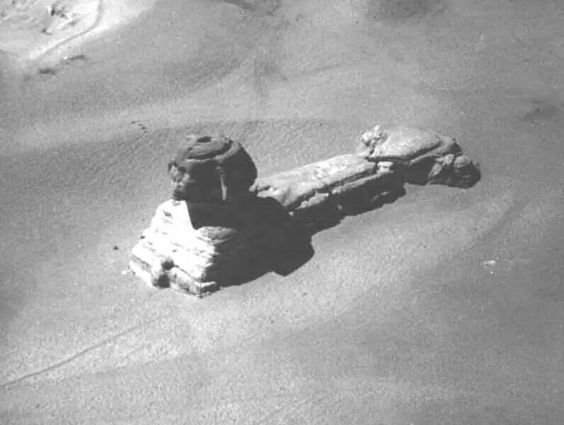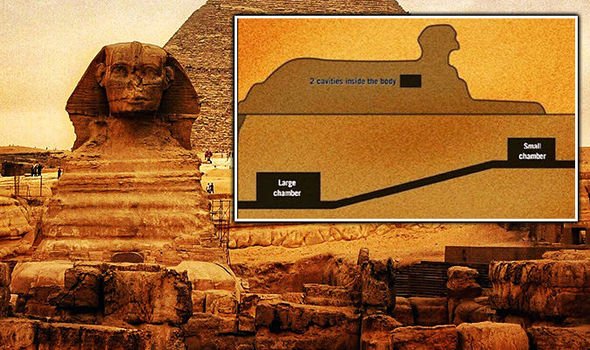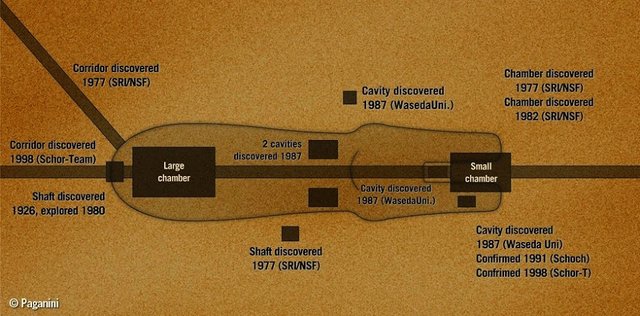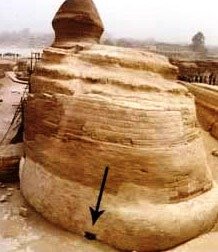The Great Sphinx is over 12000 years old
.png)
The Sphinx, along with a great other deal of Egyptian monuments, is said to have been built in what's called the age of the pharaohs. There is, however evidence that contradicts this hypothesis, and it's evidence that can be understood and reviewed by any of us.
From robertschoch.com
Left: Plate 7 from Forgotten Civilization. The southern wall of the Sphinx Enclosure showing water (via rainfall) erosion. Center: Screen capture illustration from the documentary The Mystery of the Sphinx showing rain versus wind erosion. Right: Plate 11 from Origins of the Sphinx. Structures on the Giza Plateau dated by Egyptologists to Old Kingdon times showing only wind erosion.
There is a great deal of water erosion in the enclosure limestone bedrock walls of the Sphinx and too in the actual body of the Sphinx. "Water erosion in Egypt??" you ask, with energetic surprise? Yes, that's the issue. There has been no significant rainfall that would cause such erosion in the last 5000 years. That means the construction of the Sphinx must have predated that by quite a while so that such erosion would happen. That contradicts the textbooks in saying the Sphinx was built around 2500 BC.
Robert Schoch, a geologist and author of many books, proposes the erosion shows an age of up to 12.000 years, which coincides with the end of the last Ice Age.
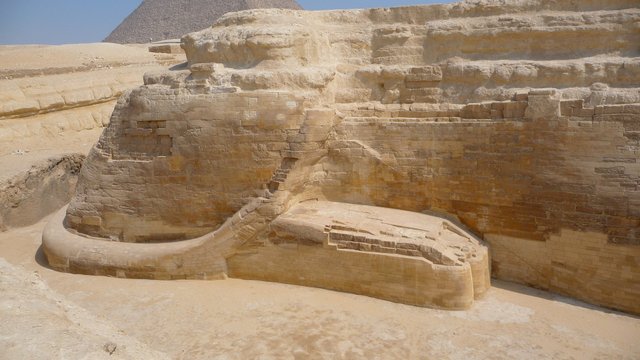
The Sphinx has had some restoration work done, throughout time. Originally a single piece cut from the bedrock in which it stands, some brick work was added to make up for the erosion it has suffered throughout the thousands of years it has been standing.
The head is very likely to have been recarved in the time of the ancient egyptians. As you can observe in this photograph, it is not proportional to the rest of the body in the slightest. Here's a comparison of how it could have looked like, with proper measurements (though there is some recent evidence that proposes it would have been a guardian lioness, not Anubis):
There are multiple hatches, rooms and pathways in and under the Sphinx. To where they lead or what's in them is hard to say. The Egyptian government is quite secretive about it, and seldom allows exploration of these features by private individuals. Why, I have absolutely no idea. Governments haven't been known for the soundness of their decisions, though.
Don't forget to vote and share if you enjoy my content.
Much love,
RC
